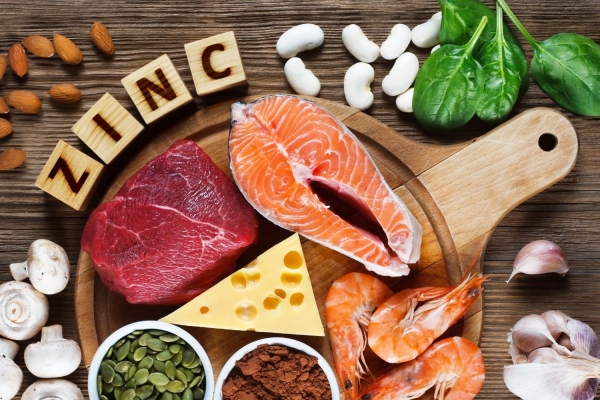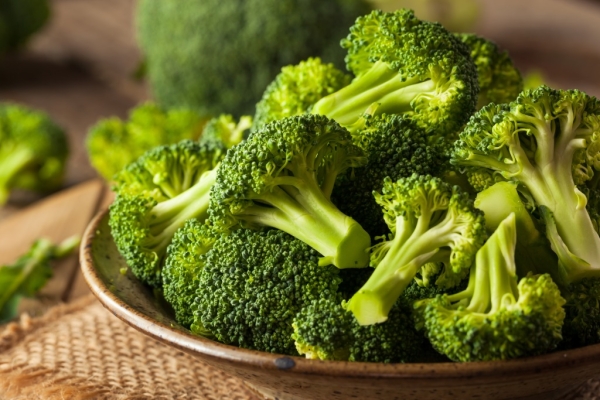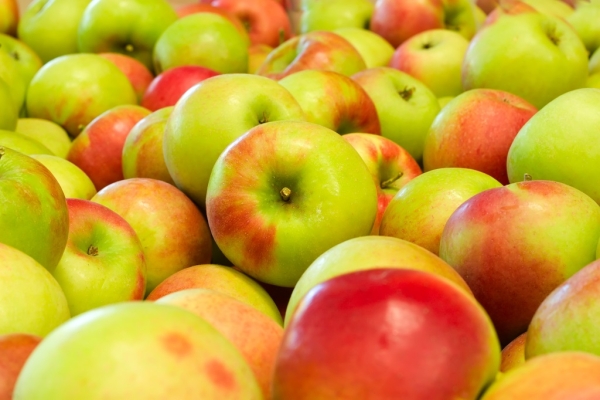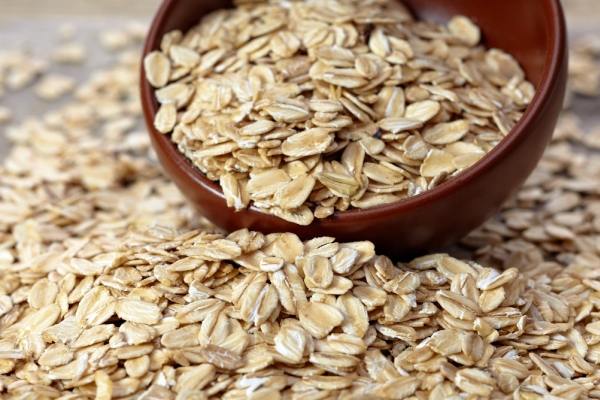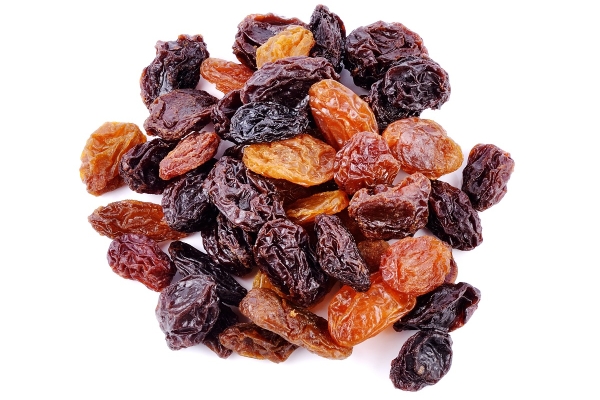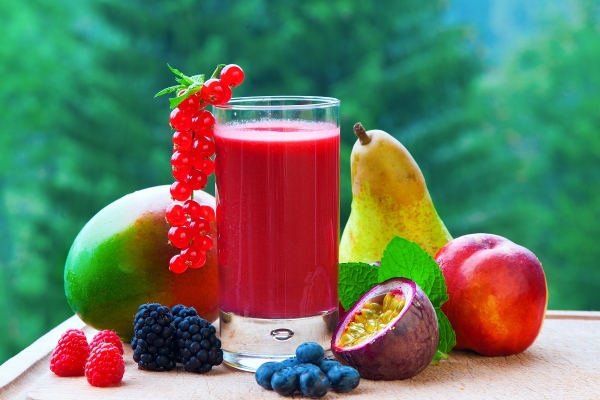-
12-02-2026
Gluten Intolerance: Symptoms, Causes, Testing, Treatment
Gluten intolerance refers to a broad spectrum of disorders associated with the consumption of gluten, a protein primarily found in wheat, barley, and rye. While celiac disease is the most well-known form of intolerance, recent years have seen growing interest in non-celiac...
-
27-01-2026
Mini Prevention Guide- Probiotics, Prebiotics, and Key Foods for Gut Health
In an era where fatigue, sleep disturbances, digestive discomfort, and unexplained inflammation have become almost “normal,” the human body is sending signals that should not be ignored. Behind many of these daily symptoms lies an often-overlooked protagonist of our overall...
-
31-12-2025
New Year - New Me: The Health Checkups Worth Doing Before Changing Your Lifestyle
Each new year brings goals, hopes, and, often, the need for a powerful “restart” in our lives. The phrase "New Year - New Me" isn’t just a trend; it's an expression of our inner desire for transformation. However, experience shows that intention alone is not enough. If the...
-
11-12-2025
After the Feast: What Happens to Our Gut and Hormones After Overeating
The holidays are, for many, the most beloved time of the year. Meals with friends and family, rich dishes, wine, sweets, and carefree indulgence. However, after each such gathering, many of us experience bloating, fatigue, or low mood. Others may even experience digestive issues,...
-
27-11-2025
Nutrient Combinations & Functional Nutrition: How to Enhance Absorption in Practice
In today’s age of abundant information on nutrition, more of us are making increasingly conscious choices on our plates. However, a crucial dimension of nourishment often remains overlooked: it is not enough to consume nutrient-dense foods; we must also absorb them properly....
-
30-04-2025
Is Apple Cider Vinegar Good for Health?
Apple cider vinegar (ACV) is a natural product used for centuries in cooking and alternative medicine. Made from fermented apples, ACV is known for its potential health benefits, which range from improving digestion to lowering blood sugar levels. But how effective is it? Based...
-
23-04-2025
Healthy Foods High in Calcium: The Ultimate Nutrition Guide
Why Is Calcium So Important? Calcium is one of the most essential minerals in the human body. It's best known for its critical role in bone and dental health, but it also contributes to: - Muscle contraction - Nerve signal transmission - Blood clotting - Heart rhythm regulation...
-
11-04-2025
Strawberries: A Miracle of Nature with Medicinal Properties
Strawberries are not just a beloved spring and summer fruit—they are a natural marvel packed with health-promoting nutrients and compounds. Behind their sweet taste and vibrant red color lies a rich combination of vitamins, antioxidants, and phytochemicals that offer powerful...
-
05-04-2025
Fruits With the Most Protein
When we think of protein-rich foods, we often think of meat, dairy, eggs, and legumes. However, some fruits contain significant amounts of protein and can contribute to daily protein intake, especially for those following plant-based or vegetarian diets. Although fruits are not...
-
01-04-2025
Top Foods High in Vitamin K2: The Ultimate Guide
Vitamin K2 is a fat-soluble vitamin crucial to bone health, cardiovascular function, and overall well-being. It belongs to the vitamin K family but has distinct properties and functions compared to vitamin K1, which is mainly found in leafy greens. This article will explore the...
-
28-03-2025
Medical Properties of Oranges: A Natural Wonder
Oranges are one of the most popular and beneficial fruits in the world. Rich in vitamins, minerals, and antioxidants, oranges are a natural ally for our health. In this article, we will explore the medical properties of oranges, their nutritional value, and their benefits to the...
-
01-03-2025
Top Cancer-Fighting Foods
Diet plays a crucial role in cancer prevention and treatment. Certain foods contain potent antioxidants, anti-inflammatory compounds, and phytochemicals that help protect cells from damage and inhibit the growth of cancerous tumors. Below are 12 of the most effective...
-
23-02-2025
16 Foods That Boost the Body's Energy
Diet plays a crucial role in our energy levels, affecting our physical and mental performance. If you often feel tired or weak, you may need to incorporate certain foods into your diet. Below, we present 16 foods that boost the body's energy. 1. Bananas Bananas are rich in...
-
09-03-2024
Nutritional Support for Optimal Methylation
Optimal methylation is essential for various bodily functions, including DNA synthesis and repair, neurotransmitter synthesis, hormone regulation, and detoxification. Here are some key nutrients that support methylation: B Vitamins - B12: Methylcobalamin is the active form of...
-
16-07-2023
Caffeine and Headaches
Caffeine is one of the most widely consumed psychoactive substances in the world. Found naturally in various foods and beverages, including coffee, tea, chocolate, and energy drinks, caffeine is known for its stimulating effects on the central nervous system. While it can provide...
-
15-06-2023
Avocado. The ally to your gut microbiome health
Studies aimed to analyze the impact of avocado consumption on the gut microbiome and microbial metabolites show us now that daily consumption of avocado can contribute to the improvement of gut health and its microbiome. Overweight and obese but healthy adults were included in...
-
30-05-2023
Cherries. Health benefits and risks of their consumption
Cherries are round fruits that belong to the Prunus genus and are part of the Rosaceae family. They come in various cultivars, including sweet cherries and tart cherries, each with its own distinct flavor and characteristics. Sweet cherries: Sweet cherries, such as Bing,...
-
27-04-2023
Three common signs of sugar withdrawal
Many of us have a soft spot for an afternoon treat, sugar in our tea or some chocolate in the evening. And whilst there’s nothing wrong with enjoying the occasional sweet snack, eating these items regularly can quickly result in a high sugar consumption, especially if you get...
-
25-03-2023
Obesity and the Gut Microbiome
Although recent studies have highlighted the impact of gut microbes on the progression of obesity and its comorbidities, it is not fully understood how these microbes promote these disorders, especially in terms of the role of microbial metabolites. A new study report that...
-
-
06-12-2022
Glucomannan
Konjac glucomannan (KGM) is a dietary fiber hydrocolloid polysaccharide isolated from the tubers of Amorphophallus konjac. Over the last few decades, purified KGM has been offered as a food additive as well as a dietary supplement in many countries. Also, a diet containing konjac...
-
12-11-2022
The gut microbiome influences host diet selection behavior
Yogurt or eggs, steak or veggies, or maybe potato chips? We make decisions about what to eat every day, but those choices may not be fully our own. New research on mice shows for the first time that the microbes in animals' guts influence what they choose to eat, making...
-
24-09-2022
Zinc. Its Importance for Human Health
Zinc (Zn) is an essential micronutrient for humans and is extensively involved in protein, lipid, nucleic acid metabolism, and gene transcription. Its role within the human body is extensive in reproduction, immune function, and wound repair. At the microcellular level, it has a...
-
08-10-2019
Traditional yogurt and its beneficial properties in patients with insulin resistance
Imbalances in the composition of the intestinal microbiome have recently been reported in people with Metabolic Syndrome. This has led the scientific community to investigate the contribution of the intestinal microbiome to the benefits of lifestyle interventions in order to...
-
12-02-2019
Omega-3 fatty acids
The two most important omega-3 fatty acids, EPA and DHA, are found mainly in fish. ALA (alpha-linolenic acid), another omega-3 fatty acid, is found in plant-based foods such as nuts. Omega-3 fatty acids are not only essential for normal body function but also provide significant...
-
10-12-2018
New study highlights the benefits of the Mediterranean diet for women
An increasing body of scientific research suggests that the Mediterranean diet is probably the only diet that prevents diseases! According to a new US scientific study, the Mediterranean diet reduces cardiovascular risk by 25%, especially in women, as prescribed medicines, such...
-
03-12-2018
Vitamin B12: Symptoms of deficiency
Vitamin B12 is extremely important for our health. It is the vitamin of energy but also the one that helps our body to maintain its emotional stability as it contributes to the successful transmission of signals to the nervous system. Vitamin B12, also known as cyanocobalamin,...
-
23-10-2018
Which are the most water-rich foods?
Water is a valuable ingredient that hydrates our bodies. In addition to drinking water, there are foods that contain a lot of water. An adult should drink 8 to 10 glasses of water a day to adequately cover the needs of his body. We often think that we should drink water only...
-
10-10-2018
Sweeteners: Solution or risk to our health?
Artificial sweeteners have been used for decades as sugar substitutes in countless processed foods to persuade us to eat fearlessly "forbidden" foods such as soft drinks or sweets. But is it safe for our health? New research sheds more light on answering the question. The news...
-
04-10-2018
Coffee: Does it really benefit us? Yes!
Coffee has often been the subject of controversy over its benefits. Is a cup of coffee really good for our health or not? A cup of coffee can be beneficial for our health! As with most foods, overconsumption is always dangerous! So, enjoy your coffee without fear because, among...
-
21-09-2018
Broccoli: The real superfood!
Unjustly broccoli has such a ... bad reputation, given the fact that it is a real divine gift for our health! Read its benefits for our health! These cute green trees are probably the cheapest "medicine" of nature. Broccoli belongs to the cabbage family (family Brassicaceae)...
-
11-09-2018
Egg: 5 reasons we should include it in our diet!
One of the most misunderstood foods! The good reputation of the egg in our diet seems to be restored and it is considered an excellent source of protein! There was a time when eggs were almost demonized and the recommendations even said to completely avoid them as harmful to our...
-
10-09-2018
Fruits: How do they affect estrogen metabolites?
More and more research shows that eating fruits and vegetables helps prevent various forms of cancer. One of the concerns of women is breast cancer. How exactly do fruits help and what do estrogen metabolites have to do with breast cancer? What are estrogen metabolites? ...
-
26-03-2018
Strawberries. Health benefits and risks from consuming them
The strawberry, scientifically known as Fragaria ananassa, is a hybrid of two wild strawberry species from North America and Chile. The strawberries have a bright red color, a juicy texture, a characteristic aroma, and a sweet taste. They are an excellent source of vitamin C and...
-
20-02-2018
The importance of Greek Orthodox fasting for health
Fasting is defined as partial or total abstinence from all foods or selective abstinence from certain foods. Fasting is mainly imposed for religious reasons, but because it is a non-pharmacological intervention to improve health and increase longevity, fasting has been the...
-
30-01-2018
Lactose intolerance. Everything you need to know
Lactose is a sugar found in milk and dairy products. The small intestine - the organ in which nutrients are absorbed - produces an enzyme called lactase. Lactase breaks down lactose into two simpler forms of sugars: glucose and galactose. The body then absorbs these simpler...
-
25-01-2018
Apples: Health benefits and risks from their consumption
Apples are one of the most popular fruits with many health benefits, supported by many research results. Apples (Malus domestica) belong to the group of pome fruits of the Rosaceae family to which belong, apart from apples, pears, apple pear, loquats, and quinces. The family...
-
23-01-2018
Histamine Intolerance: Everything you need to know
Do you experience unexplained headaches or severe stress? Does your face blush too much when you drink red wine? Is your menstrual cycle irregular? Do you have an itchy tongue and mouth or a runny nose when eating bananas, avocados, or aubergines? If you answered yes to any of...
-
11-01-2018
Oat: Health benefits and risks from its consumption
Oat belongs to cereals and is scientifically known as Avena sativa. Oat is grown mainly in North America and Europe. It is a very good source of fiber, especially beta-glucan, and is high in vitamins, minerals, and antioxidants. Oats are the only source of a special group of...
-
03-01-2018
Banana: Health benefits and risks from consuming it
Banana is one of the most important foods in the world. It belongs to the Banana family (Musaceae) which includes also Plantain. They originate from Southeast Asia and are cultivated in many of the warmest regions of the world. Bananas are a very good source of fiber, potassium,...
-
09-11-2015
Microbiome Diet
The article Microbiome Diet, published in the newspaper "All about Health" on 4-11-2015. Microbiome Diet. Lose weight forever! Have you ever wondered how an examination of the intestinal microbiota can give us important information that leads to definitive solutions for proper...
-
11-09-2015
Simple Steps to Lower Cholesterol
Did you recently find out that you have high cholesterol levels, after a blood test? Then you probably already know that you need to change your diet and lifestyle in order to reduce cholesterol levels and the risk of heart disease. Even if your doctor prescribes medicines that...
-
13-02-2015
Raisins and Blood Sugar
Raisins Help to Steady Blood Sugar Levels Raisins are high in potassium, have a low glycemic index, and contain fiber, polyphenols, phenolic acid, tannins, and antioxidants. Harold Bays, from the Louisville Metabolic and Atherosclerosis Center (L-MARC) (Kentucky, USA), and...
-
02-02-2015
More Fruit Lessens Depression Risk
More Fruit Lessens Depression Risk A number of previous studies report a link between dietary factors and depression. Gita Mishra, from University of Queensland (Australia), and colleagues studied data collected on 6,271 women, mean age 55 years, enrolled in the Australian...
-
03-10-2014
Food Intolerance FAQ
Frequently Asked Questions about Food Intolerance and TrophoScan® What is an adverse food reaction? An adverse food reaction is defined as any symptom that occurs after ingestion. A symptom can be any change in how we feel and it can manifest for example, as a rash, as joint...




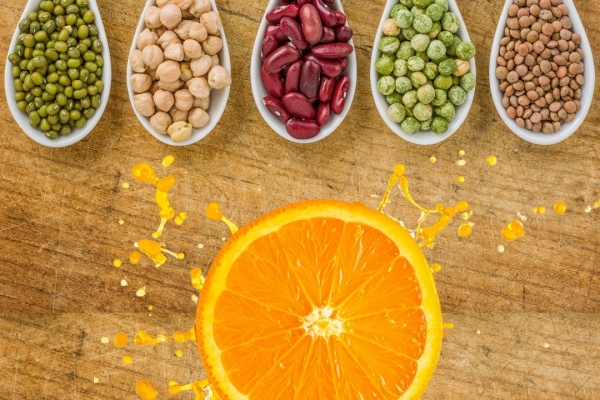

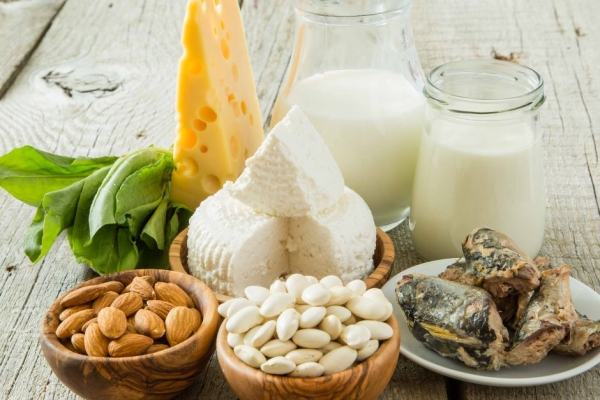
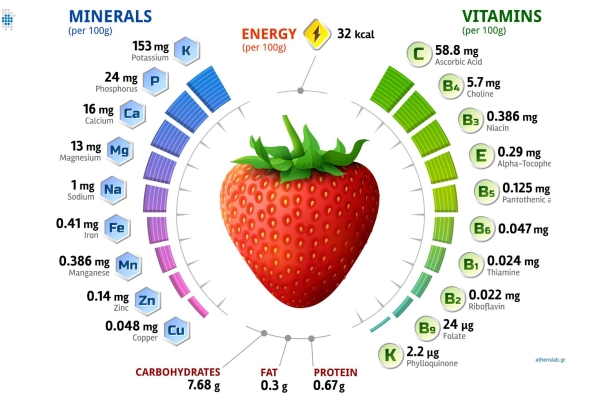
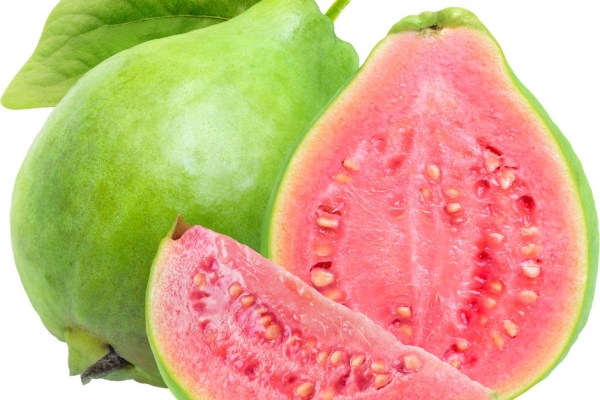

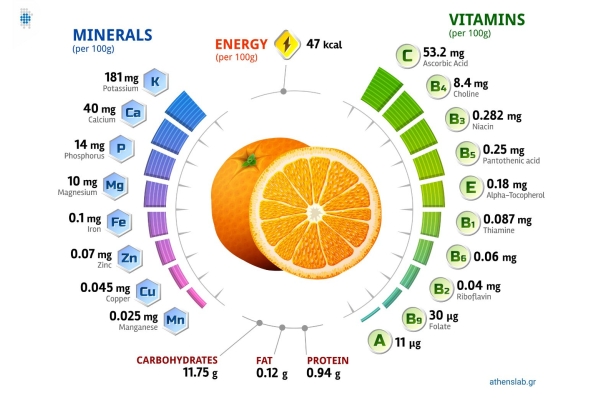
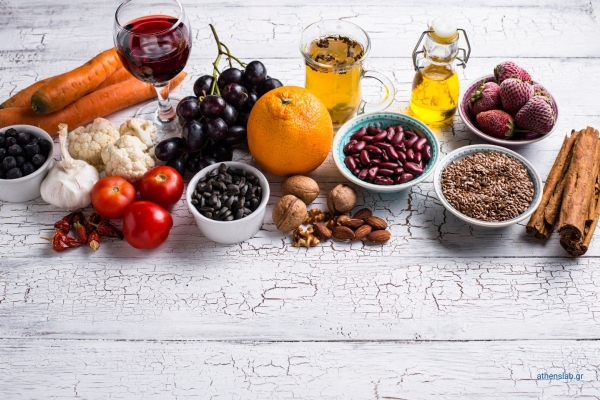

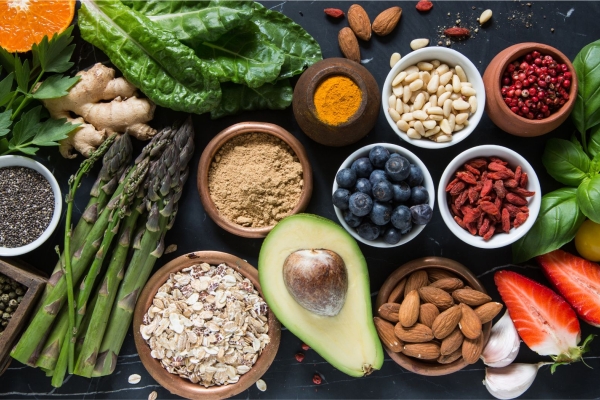




-600x400.jpg)
-600x400.jpg)


-600x400.jpg)
